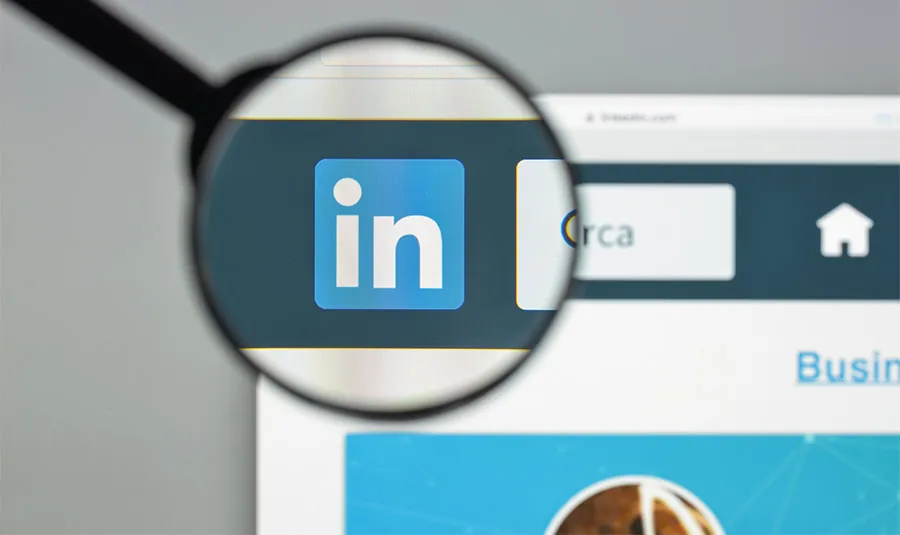Debunking the Top 5 Social Selling Myths

As popular as social media has become today, many business owners and sales professionals are still skeptical of using social media in their sales efforts. Why is there hesitancy? Is it because they fear the unknown? Perhaps they lack the skills or knowledge which increase their reluctance? If used effectively, results tell us it can become a tremendous tool to engage with potential customers and eventually grow revenue. To do this, however, you have to look past the many myths that surround social selling and be confident in your approach. With today’s post, I want to focus on some of the most detrimental of these myths.
Myth #1: Social Selling Is Not Effective for B2B
This is an understandable but nonetheless untrue assumption. When you look at social media pages and posts, you probably think of retailers, lifestyle brands, and other, primary B2C sellers who are using fun images and catchy memes to promote their products and services. This makes it look like social selling is mainly an effective tool in the B2C realm.
However, that really is an old way of thinking. You can adapt a social marketing and social selling strategy to the B2B world just as well. Chances are your leads, prospects, and customers have active accounts on social media and are interested in the content you share via social. In fact, a 2015 research study revealed that 53% of B2B buyers use some form of social media to research prospective vendors and companies they want to do business with. With a growing millennial workforce, that number has likely increased since then, and will continue to rise.
Myth #2: Social Selling isn’t Worth Your Time
While it’s true that you can spend many unproductive hours on social media, it’s also a vast resource that you can’t afford to overlook. Top-performing sales professionals who embrace social selling can use sites like LinkedIn or Facebook to research and network with potential clients. This type of research can aid in your efforts to build rapport with prospects or simply help you stay updated on company news and events.
Myth #3: Social Selling Doesn’t Require an Organized Strategy and Training
Because social media pages tend to favor casual, lighthearted, and often humorous content, it’s easy to conclude that your approach to social selling can be similarly casual. This, however, is not the case. To succeed with social media, you need an organized and systematic strategy. Research your market thoroughly, post engaging content, and partake in group discussions.
Sporadic use of social media isn’t an effective strategy. A successful strategy consists of a commitment to listen, contribute, and collaborate in order to effectively integrate social selling as part of your overall sales processes. For example, take 15 minutes in the mornings, and another 15 minutes towards the end of the day to retweet a prospect, like a customer’s Facebook status, or leave a thoughtful comment on a prospect’s LinkedIn post.
Even if half of your staff feels confident about their social selling prowess, it pays to bring everyone on a level playing field so that company guidelines, expectations, and best practices can be shared and adhered to organization-wide.
Myth #4: Social Selling Fails to Produce a Significant ROI
Every business has to carefully choose its marketing and sales strategies and processes, and social selling can be challenging to accurately measure and track. More often than not, social selling is akin to a nurturing campaign that helps you build your brand, network with prospects and customers, and extend your reach beyond traditional means of communication. Rarely do social selling efforts materialize in opportunities right away. Instead, they are part of a more holistic strategy to forge business relationships.
Research studies have shown the effectiveness of social selling. A survey cited in the Harvard Business Review found that 72% of B2B sales people who use social media outperformed their peers.
Myth #5: Social Media is Too Distracting
Social media can be full of distractions; there is no need to mince words. This is where proper training comes in. Sales professionals need to understand that social selling doesn’t mean to simply scrolling Twitter and Facebook or randomly chatting with people. It has to be approached in a professional and organized manner. Keep in mind that most sales professionals are using social media anyway, so it’s always a potential distraction. Social selling, meanwhile, is a specific strategy that requires people to follow certain steps to research and connect with customers and prospects. This means that providing the training to get the most out of sites such as Facebook, LinkedIn, and Twitter can be a worthwhile investment.
Don’t let any of these myths stop you from embracing the vast potential benefits of social media for your business and career. Social selling isn’t here to replace what has been working for you in the past. Instead it can provide you with additional tools to improve your prospecting/sales efforts and benefit your overall sales results.

- Account Planning (12)
- Awards (44)
- Client Testimonial (37)
- Personal Branding (21)
- Podcast (12)
- Research (78)
- Sales Career Development (90)
- Sales Coaching (166)
- Sales Consulting (141)
- Sales Culture (180)
- Sales Enablement (382)
- Sales Leadership (116)
- Sales Management (267)
- Sales Negotiation (14)
- Sales Prospecting (138)
- Sales Role-Playing (19)
- Sales Training (243)
- Selling Strategies (281)
- Soft Skills (78)
- Talent Management (101)
- Trusted Advisor (29)
- Virtual Selling (57)
- Webinar (13)

























